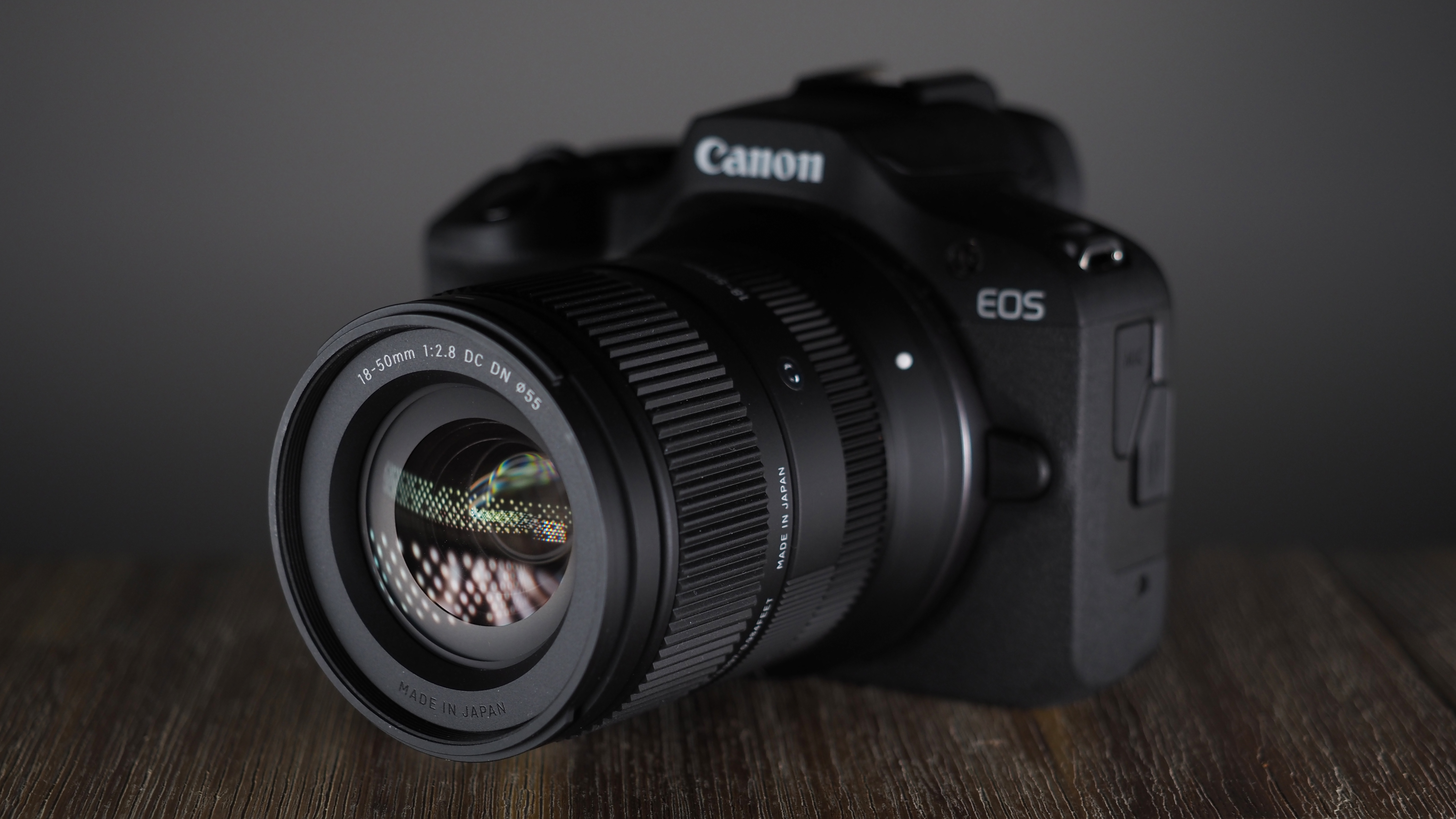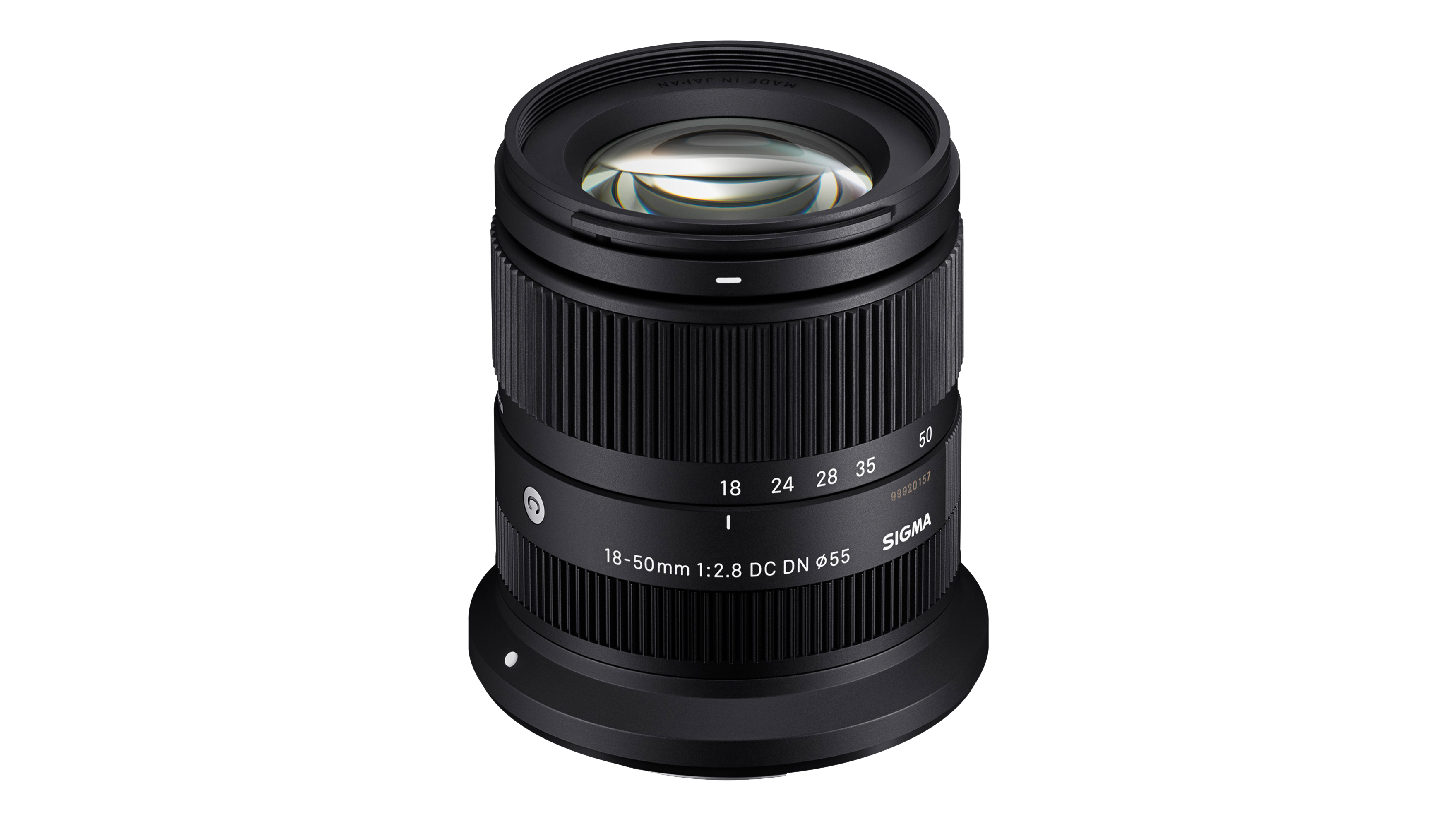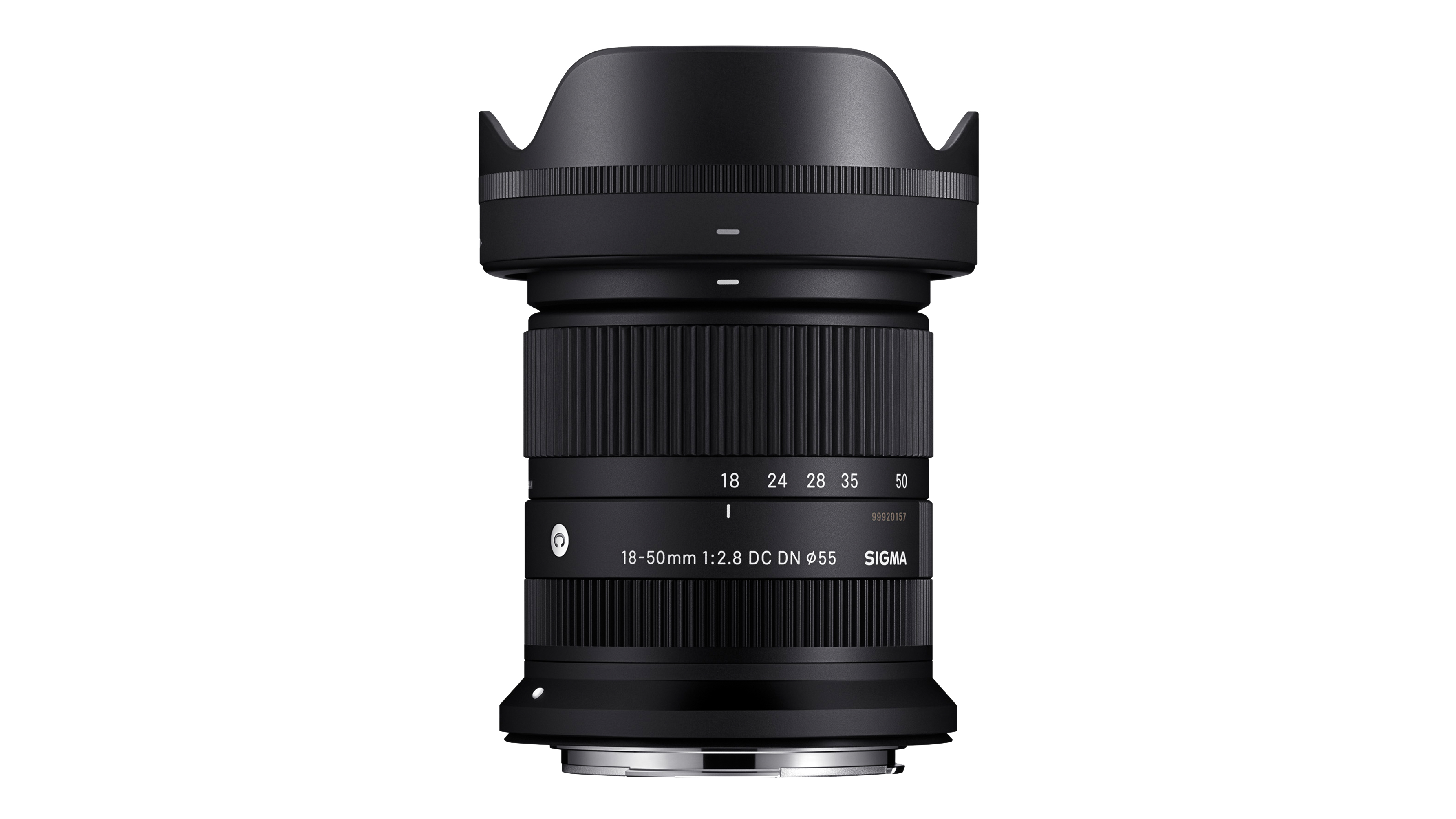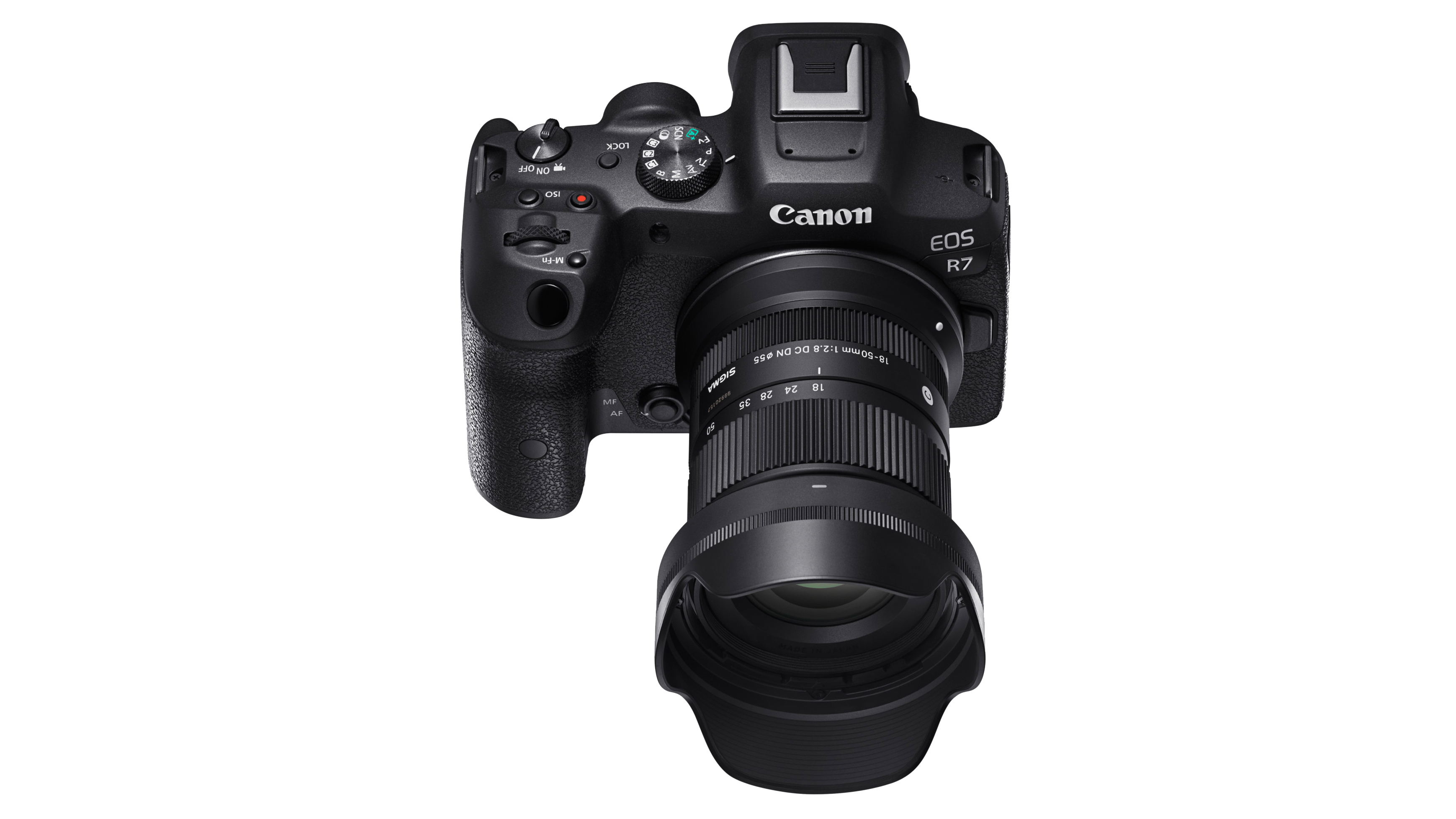
Six years after the launch of the EOS R system, Sigma has finally released its first Canon RF mount lens: the Sigma 18-50mm f/2.8 DC DN | C.
While it will physically fit any RF mount camera, the Sigma 18-50mm f/2.8 DC DN | C is specifically an RF-S lens – which means it is designed for EOS R bodies with an APS-C sensor, such as the Canon EOS R7, R10, R50 and R100, though it can be used on full-frame EOS R cameras in crop mode.
The lens has an equivalent focal length of 28.8-80mm and boasts a constant f/2.8 maximum aperture along with weather sealing, which effectively makes this a standard trinity lens – but one that, thanks to its Contemporary designation (the "C" in the name), is as portable as it is powerful.
Weighing only 300g and measuring just 69.2 x 74.5mm at the wide end (though it does extend as you move to the tele end), this unbelievably small optic pairs perfectly with compact bodies like the EOS R100 – which is one of the cameras I used for my Sigma 18-50mm f/2.8 DC DN | C review.
It should be noted that this is not a lens designed exclusively for the RF mount, but is an existing lens that has been available since 2022 for Sony E, Fujifilm X and L-Mount cameras.

As such it carries broadly the same specifications and optical formula, with 10 groups consisting of 13 elements including a super-low dispersion lens and a trio of aspherical lenses.
That means it also inherits some of the existing optical foibles, such as fringing, uninspiring corner sharpness and pretty profound distortion (though the latter is corrected in-camera).
Still, like its forebears, I found it one of the best APS-C lenses I've had the pleasure of using. "Sigma's debut on the Canon RF mount is a triumph," I wrote in my review.
"Super light yet super fast, pint-sized yet power-packed, I keep coming back to the same key selling point: this is a standard trinity lens that fits in your pocket. What's not to love about it?"
The Sigma 18-50mm f/2.8 DC DN | C for Canon RF goes on sale July 11, priced £479 in the UK (US and Australian pricing to follow).



Take a look at the best Canon RF lenses, along with some of the best standard zoom lenses currently on the market.







